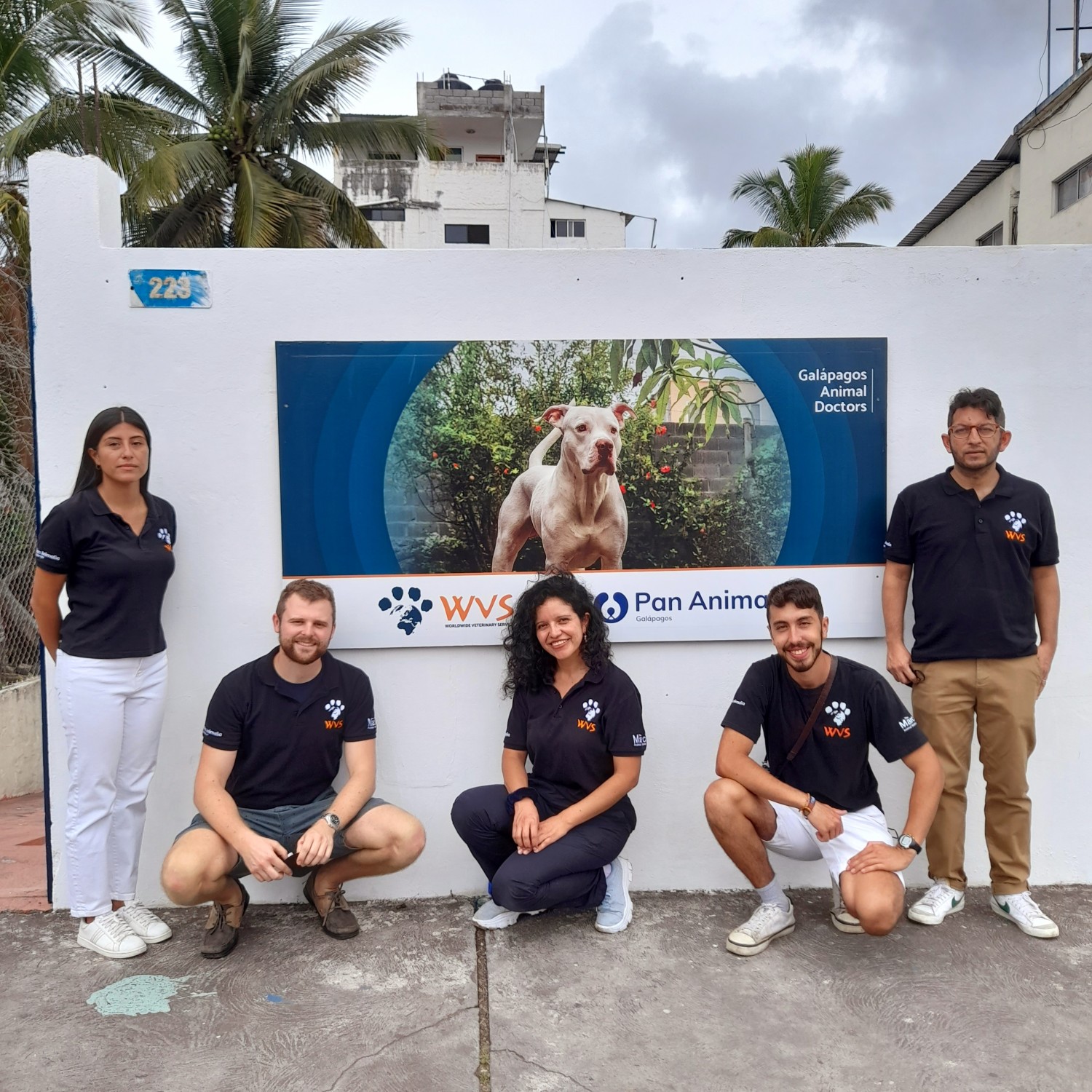Introducing Galápagos Animal Doctors
The Galápagos Animal Doctors is a joint venture by Worldwide Veterinary Service (WVS) and Pan Animalia (PAG) that provides expert care to domestic animals on the Galápagos Islands, as well as contributes to conservation through humane population control and community engagement.
Here to tell you all about it is Dr Ben Howitt (pictured below).
Volunteer: Learn more and apply today.

Tell us more about the Galápagos Islands
“The Galápagos Islands, globally associated with the travels of Charles Darwin on the HMS Beagle, is considered one of his major influences on the theories of Evolution and Natural Selection. Only reaching the Galápagos at the end of his five-year voyage on the Beagle charting South America, he recorded his observations on the species of each microenvironment and the biodiversity within. But Darwin only passed around the islands for five weeks, and the countless incredible discoveries of what the islands held were still yet to come."

“Nowadays, 97% of the Islands are a National Park and heavily protected. There are incredible scientific efforts consistently protecting certain species and their environments, but it cannot be understated that the Galápagos is not separated from the effects of human globalisation and all the associated difficulties such as climate change and plastic pollution."
“One of the more described threats are the impacts of invasive species, where domesticated animals such as dogs, cats, and horses are categorised within. Providing support for these animals with professional veterinary care, whilst simultaneously managing the population to limit any conflict with the endemic species, is core to our mission.”
Volunteer: Learn more and apply today.
What’s it like for animals living on the Galápagos Islands?
“The Galápagos is a wonderful environment, and the marine iguanas, frigate birds, pelicans, and sea lions are very much present within the urban areas, comfortable with our own presence. The towns have dogs and cats roaming comfortably, but their numbers in the more rural highlands are very much less known. Here, there are other domestic species including ruminants and horses on agricultural land. Dogs and cats are also present on all four inhabited islands, in which the Galápagos Animal Doctors clinic is based in the main hub town of Puerto Ayora, on the island of Santa Cruz.”

How are we changing the narrative on the Galápagos Islands?
“There is already a narrative that has grown there over the years. The Galápagos community is very engaging and passionate about their environment, and there is an appreciation of the risk that domestic animals have on the biodiversity of the islands."
“We aren’t here to change a narrative but to help support the community to build it, develop it, and cultivate it."
“But why is the narrative important? Well, if there is an environment in the world that has the best chance of protection, but also would be one of the biggest losses to our natural world, then it’s the Galápagos Islands. After hundreds of thousands of years of effective isolation, and the wondrous alien-type adaptations that are witnessed there because of this, then how devastating would it be if we caused its demise within less than a hundred years?”

"Whilst WVS is striding forward with PAG to support the biodiversity of the Galápagos Islands, our wider vision to support projects on the main continent will soon start to take shape with WVS South America."
What’s been the impact of the pandemic to the Galápagos Islands?
“The Galápagos economy is almost exclusively based on tourism. It has really suffered over the pandemic economically, and that reverberates throughout the social framework and community that also impacts the animals. Sustainable tourism is heavily promoted and, as long it remains sustainable, contributes to the protection of the ecosystems too.”
How can volunteers help on the Galápagos Islands?
“With a veterinary clinic set up in the main town and outreach programmes underway in the surrounding communities and islands, there’s only one thing needed. Volunteers."

"You. Come join us and be part of this life-saving project."
If you’re a vet, veterinary nurse, or veterinary student, and eager to contribute to animal welfare and conservation on the Galápagos Islands, we need you. You’ll be based in the spay-neuter clinic and embrace all aspects of veterinary skills and training, including consultations, outreach, and surgery.”
Volunteer: Learn more and apply today.

Got questions about volunteering abroad? How do I apply? It is for me? Is it even possible during COVID-19? Check out the answers to your most frequently asked questions.
Why volunteers have never been more needed?
“Volunteers are critical for operational aspects of the clinical programme, but are also important for outreach and engagement within the community.
"Whilst the islands are incredible to explore, engaging the community there is such a privilege and good fun."

“But the pandemic has taken its toll globally, and the programme needs volunteers to help realise the impact, potential, and vision.”
Volunteer with WVS today. Learn more about our projects around the world and find out how you can take part.
If you have any questions about volunteering, check out our FAQs, or please don't hesitate to email us at volunteers@mail.volunteer.wvs.org.uk.